The End of fforward
When I first started fforward, my goal was to explore the intersection of decision-making in startups and the scalability potential of new technologies like LLMs. I experienced significant pain in my previous startup around building alignment and adapting rapidly within a large team. My initial concept was to create a decision memo or decision log system. The idea was to use natural language processing to search through all organizational activity, identify decisions, and automatically draft decision memos. We planned to integrate with tools like Slack, GitHub, and Figma, aiming to rationalize decisions and ensure alignment with company values.
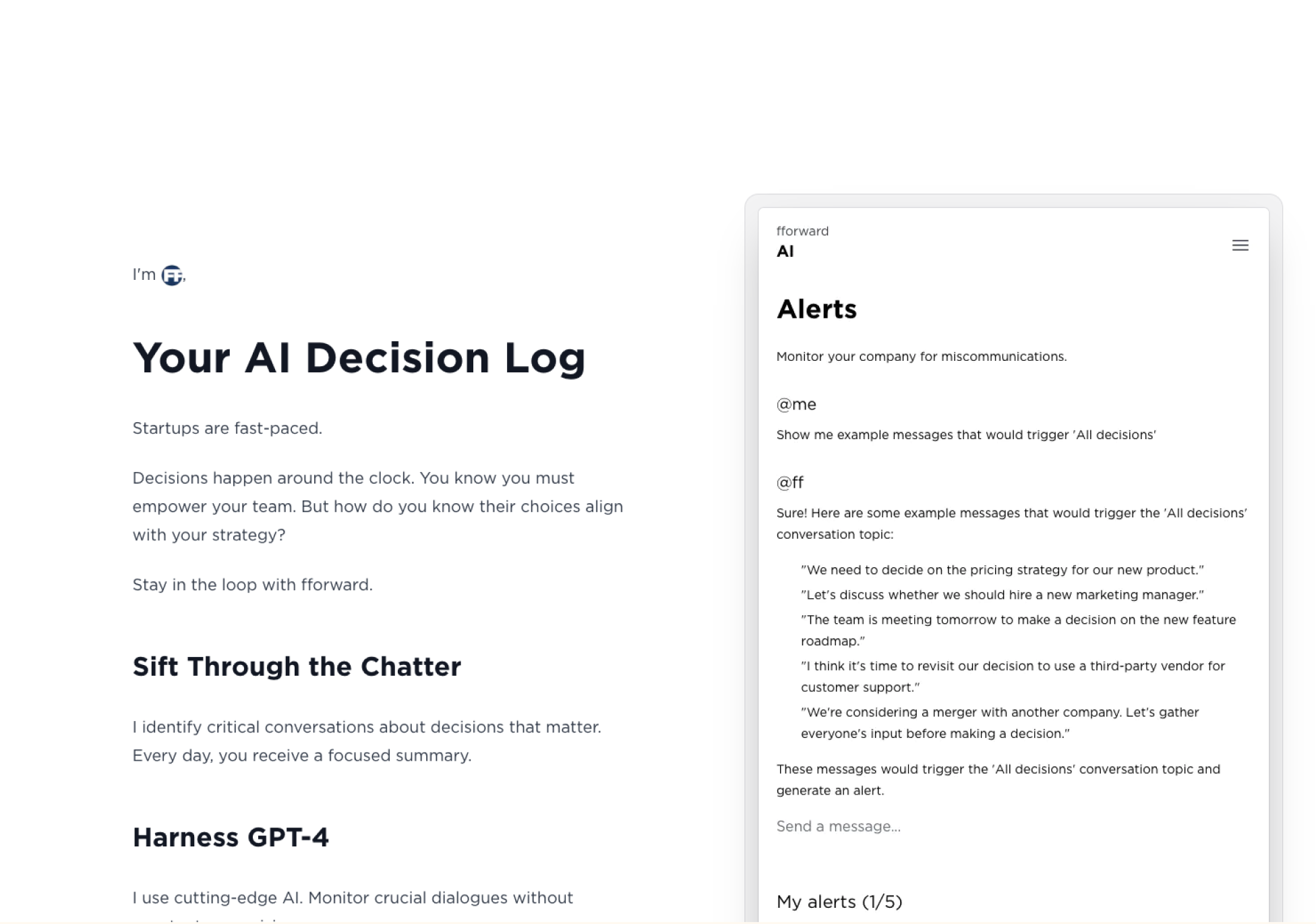
However, during user testing and interviews, I faced a significant challenge: the need to hand over all organizational data upfront. The go-to-market strategy required long sales cycles and didn’t address a burning problem for most startups. It wasn’t among their top three issues. This led me to pivot to a more specific focus on product decisions—identifying customer problems and crafting product strategies. I developed a product strategy mapping tool with visual nodes and edges, integrating AI to analyze and generate strategies.

Despite building prototypes and conducting interviews, this idea faced another hurdle: users struggled to articulate their product strategies within the tool. They preferred existing solutions like Notion or presentations, and the real pain lay in achieving alignment and moving into execution.
During this period, I built internal tools to analyze interviews and standardized reports, which my co-founder Max and others found highly useful. We pivoted again, focusing on systematically analyzing interviews to extract bias-checked insights and common themes.
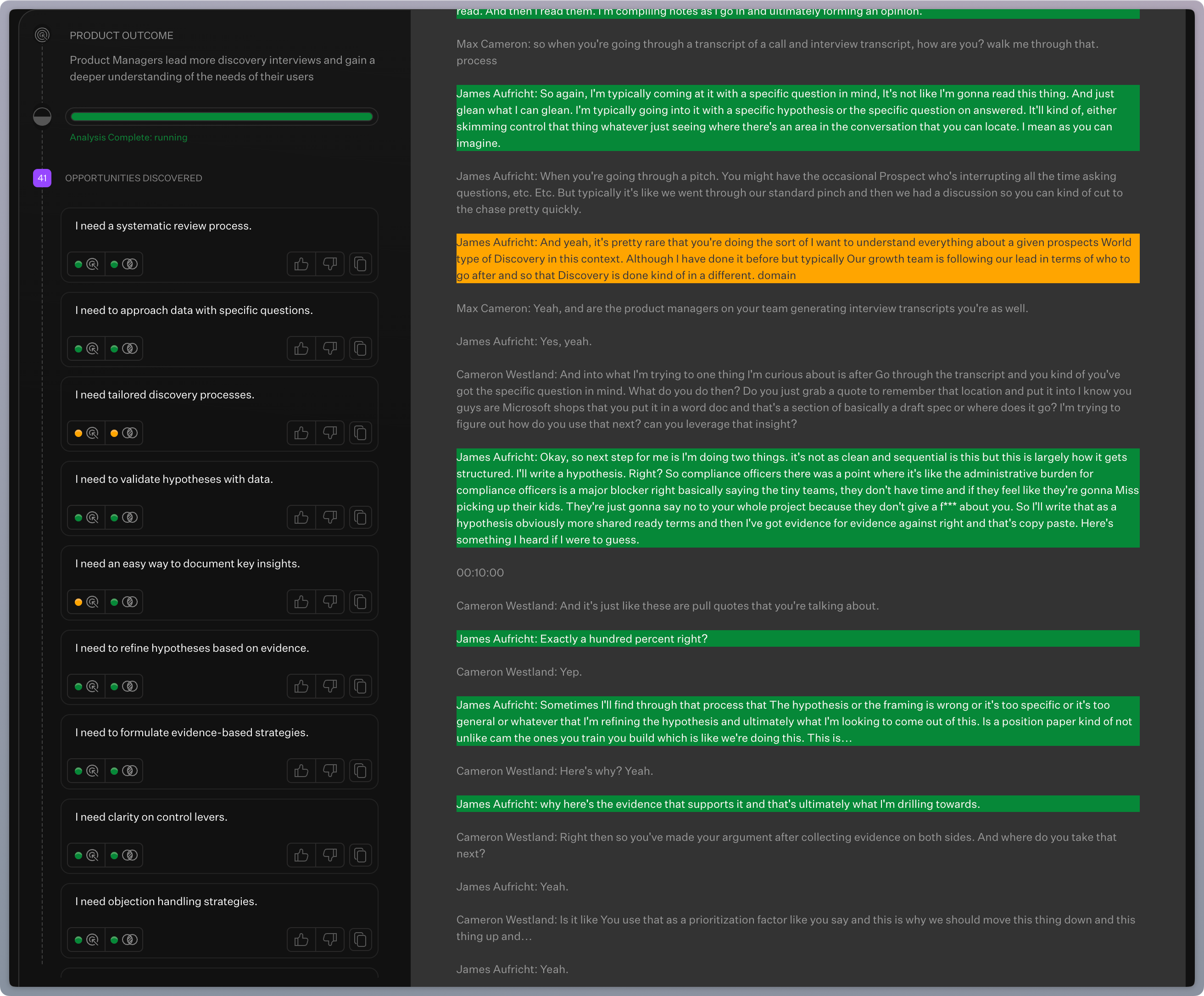
This product iteration gained significant excitement and attention on platforms like Product Hunt, where we received high praise and engagement. However, despite this initial success, user adoption faltered.
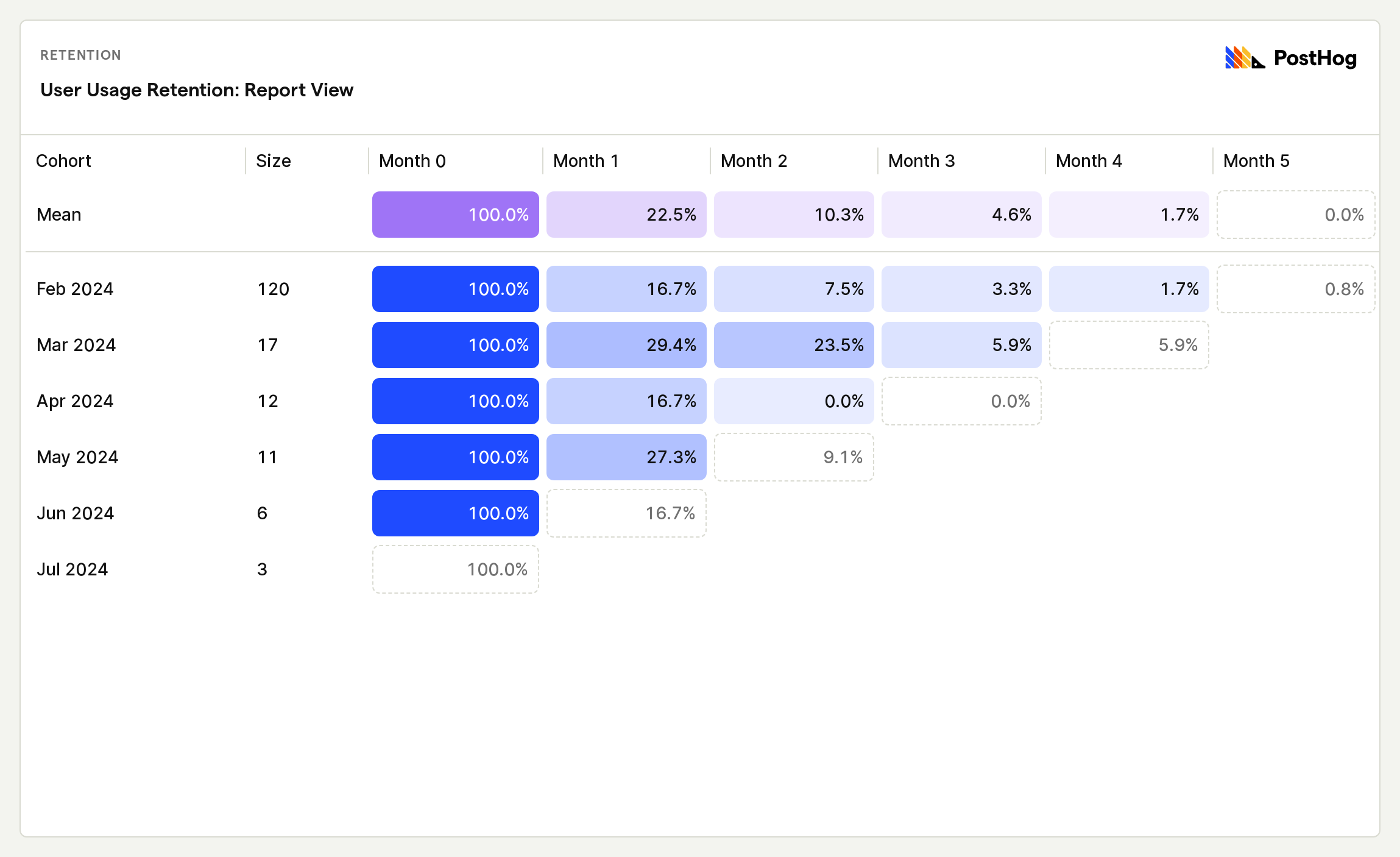
The issue wasn’t with the value of the product but with the frequency of the problem it solved. User behavior showed a significant drop-off after onboarding, and the assumption that users would return when ready to analyze interviews didn’t hold.
We then experimented with a chat feature to refine and add context, aiming to bridge the gap between extracted insights and actionable steps. While chat proved useful, engagement remained low because using chat effectively required skill and training.
We bet we could make chat the fundamental experience, moving it to the onboarding process and structuring it around predefined agendas. This would help users get started and motivate them to gather and analyze evidence.
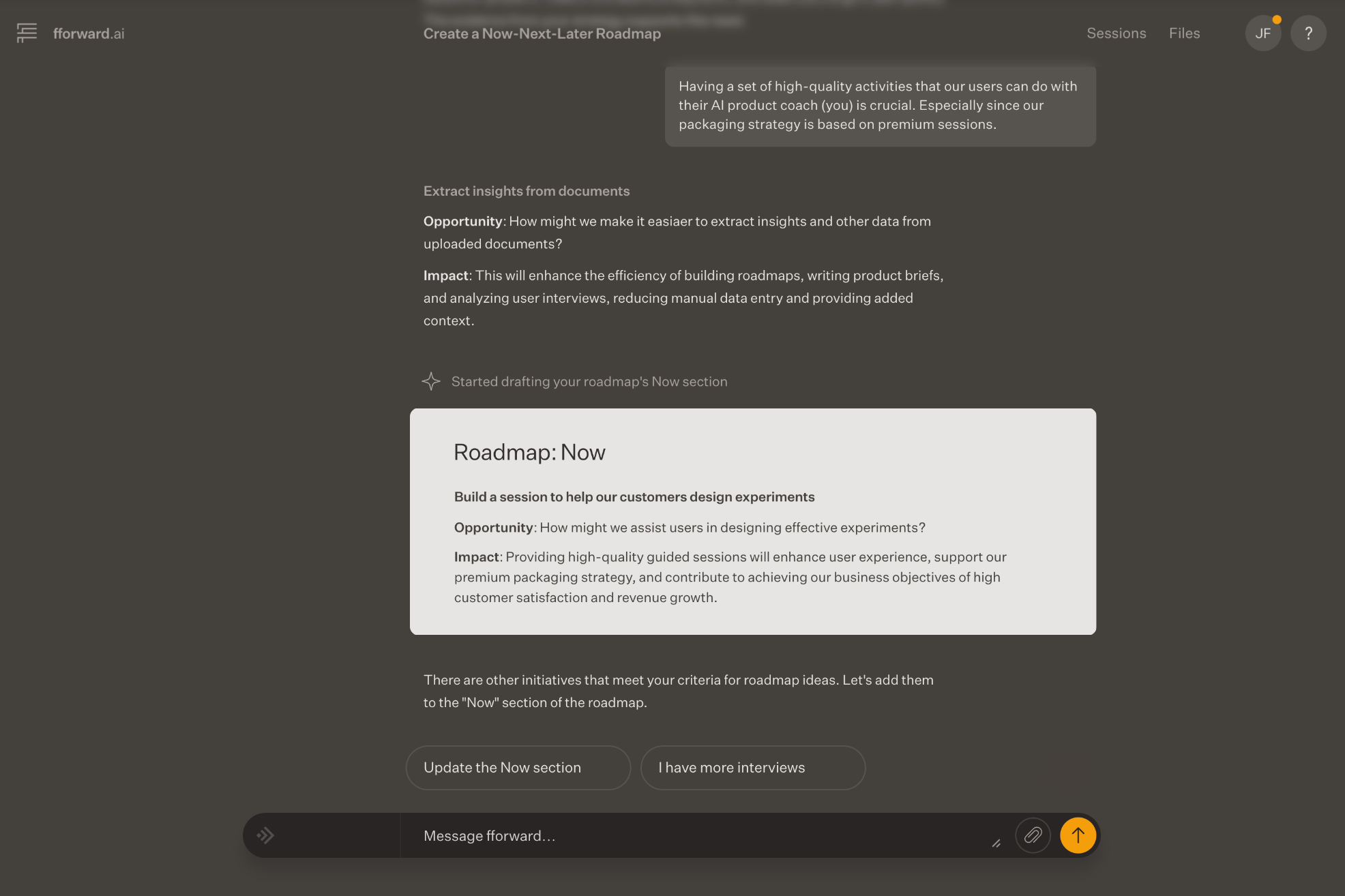
Parallel to our product journey was the challenge of fundraising. I initially raised enough for 12 months to explore ideas, but bringing in co-founders meant needing additional funds. After our initial excitement in February, I paused product development to focus on fundraising, but faced obstacles. Investors saw the competitive landscape and were hesitant due to market volatility. Some felt we were too early, lacking enough traction and revenue. Despite raising an additional $100,000 from angels, it wasn’t enough to sustain us.
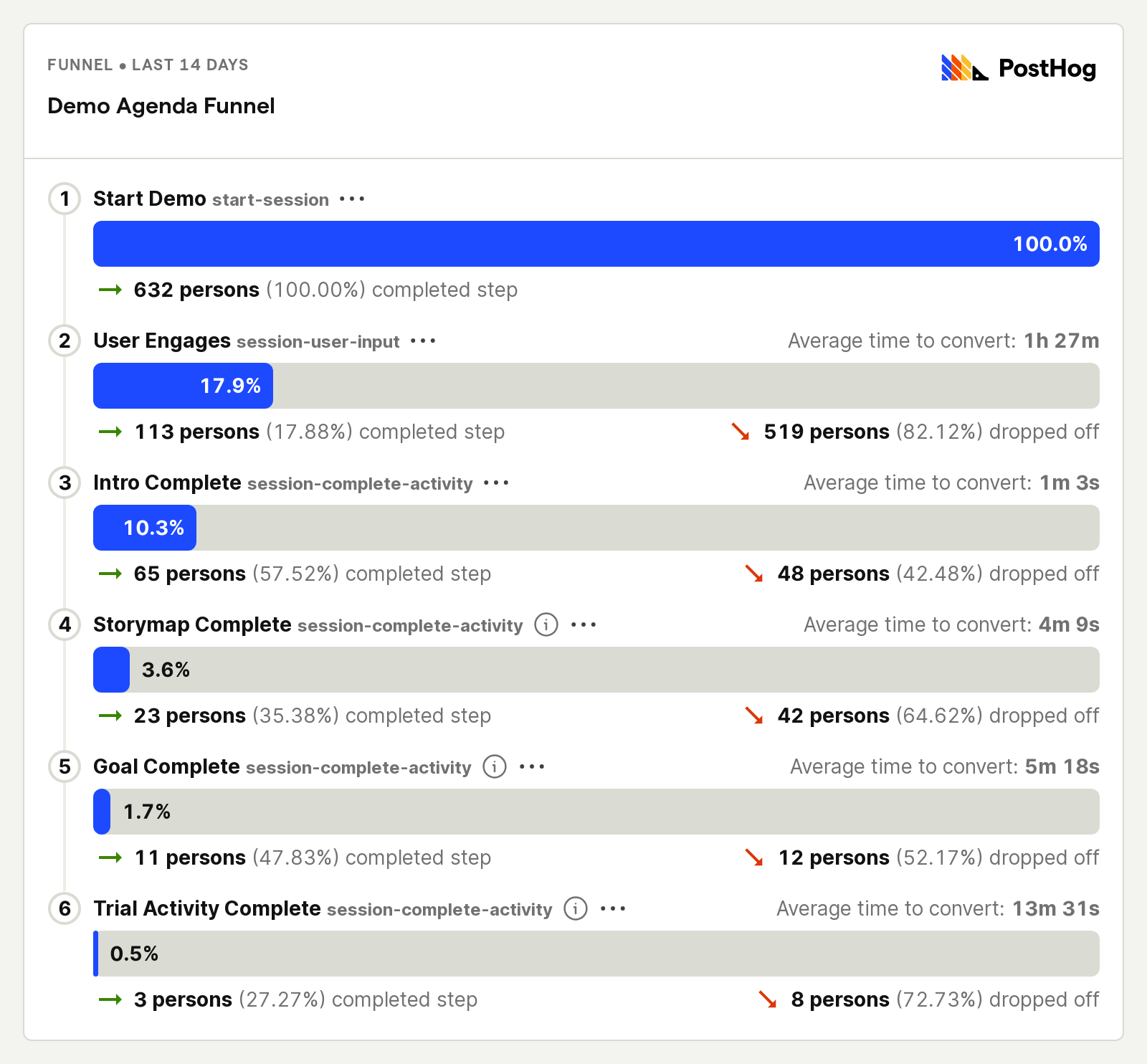
By May, with only 90 days of runway left, we doubled down on the chat-first product launch, but faced significant acquisition and conversion challenges. Our product, though innovative, didn’t achieve the necessary traction, leading us to a pivot-or-persevere meeting.
Ultimately, we decided to move on. I still believe in the vision and think someone will eventually solve this problem. But with limited resources and high burn, it wasn’t going to be us.
Gratitude
As I close this chapter, I want to express my gratitude. To my family, who’ve supported me through the roller coaster of startup life, your unwavering trust an support mean everything.
To my business partners, Max and Jon, our collaboration has been a journey of great work and mutual respect. Andrew, my co-founder in my previous venture and an angel investor in this one, thank you for your constant support and honest feedback.
To our other investors, I’m deeply grateful for your belief in us. Though we didn’t succeed in this venture, your trust and support have been invaluable.
To our users, who participated in over 275 interviews and shared their challenges, thank you for your time and openness. Your insights were the foundation of our learning and development.
We’ll ensure that annual customers are refunded and that everyone can export their data. Our aim is to leave no one hanging as we wind down operations.
Thank you to everyone who has been part of this journey.